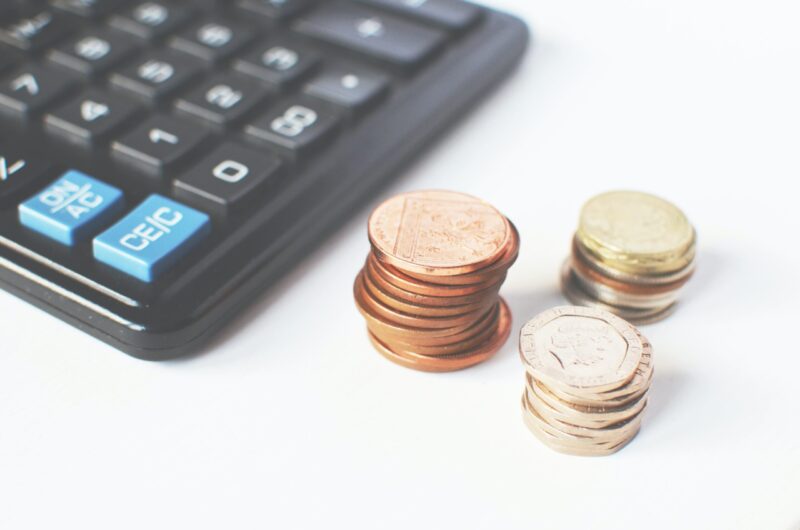Have you ever wondered how to get rid of the installment payment point and purchase the necessary products without paying the installment payment? Want to make your home management more efficient and don’t want to live “payday to payday”? The first step is to review and plan your income and expenses in detail.
When creating a budget, remember one important fact: be honest with yourself. Exclusively include all expenses incurred during the month – from bank transfer fees to the purchase of candy. Only if you are completely honest with yourself and do not exclude any expenses from the budget will it be real and detailed. The following categories should definitely be included in the budget.
1. Determine what is your income and how it can change

If your salary is received as a fixed amount each month, it is easy to calculate the income. However, it is equally important to consider all other possible incomes that have become customary for you:
- Maybe you will receive alimony?
- Child benefits?
- Any other benefits?
- Are you on the board of a company?
- Do you get a return on any investments?
- Maybe you have do other jobs?
Think of all sources of income over several months. Your budget should reflect your lifestyle as closely as possible, but when calculating your income, be sure to round it up and don’t add hypothetical amounts.
It is safest to take into account your fixed salary and other monthly fees as income. Do not budget any revenue that is uncertain. For example, if you sometimes get bonuses, do not include them in the budget, because the bonuses are not guaranteed – the employer is free to decide at some point that the bonuses can be taken away.
2. Expenditure
Expenses are generally easier to calculate because you can track them based on invoices or credit card receipts. Not very accurate in terms of expenses, but in this category it is appropriate generally to expect a larger amount of money to be spent – for example, if you do not visit the dentist every month, but you know that you definitely visit at least once or twice a year, you should take that in mind and budget.
In this way you can see exactly how much free space you have in case you suddenly have to visit a doctor. In general, expenditure can be divided into four:
- Household expenses
- Transport costs
- Fixed costs
- Variable costs
3. Household expenses

As household expenses, consider all expenses related to the home:
- Do you pay the rent for the home or do you have a mortgage instead?
- Do you own land and need to pay land tax and insurance premiums – although most of them are paid quarterly, you can use the quarterly fee as a basis and simply divide it between months (if you create a monthly budget, not an annual budget).
- Utility costs – water, electricity, heating, garbage. Depending on where you live, these costs may include administrative payments. Although the amounts of water, electricity and heating are difficult to estimate, you can take into account the average amount over several months. If you are not sure, keep an eye on your bank transfers, which should definitely show the amounts spent on the household.
- Don’t forget about household items such as cleaning products, etc.
- If you have a cottage or other property that you manage on a monthly basis, you should also consider the cost of that.
4. Transport costs
Regardless of the place of residence, transport costs are inevitable.
If you travel mainly by public transport, you should consider a monthly card or other fee in your budget, which you usually consider on a monthly basis. Owning a car will definitely come at a higher cost and should therefore take into account all possible costs. Although it is difficult to calculate the exact expenses, you can calculate your average fuel consumption and think about how much you usually drive around.
In addition, there is a need to think about insurance premiums, inspections, maintenance, tire changes and parking. Although inspection and maintenance and repair work are not monthly expenses, these costs should also be taken into account in the long run.
Remember that it is not good to calculate costs too optimally, because in case of a sudden outage you may get into trouble. If you have a car lease, consider the monthly lease payment.
5. Entertainment

This category includes all other expenses that are monthly and of a fixed amount, such as:
- loan payments
- magazine subscriptions
- TV channel packages
- streaming services such as Netflix or Spotify
- communication costs (internet and telephone)
- membership fees for fitness, hobbies etc.
If you have expenses that are unavoidable on a monthly basis, be sure to consider them – are they neccesary?
6. Other costs
This category includes all costs that cannot be determined with certainty :
- Food – usually it is not easy to calculate precisely. Measure your average food consumption per month and leave room for fluctuations in the budget: for example, if you usually buy food for a certain amount, add 20% on top of that;
- Expenses for appearance and personal hygiene – detergents, cosmetics, clothes and shoes.
- Leave room in the budget for household items such as electronics.
- Consider leisure activities such as cinema, restaurants, concerts and other entertainment.
- If you have a child, you should consider the costs of clothes, education, toys etc.
- Also, we should not forget about your pets – the easiest way is to create a category for the pet and calculate a certain amount for them every month for food, medical care and various other expenses.
7. Create a long-term budget

Budgeting is a long-term process, and the most complete overview is when you measure your expenses on a monthly basis throughout the year – many expenses are not monthly, such as medical expenses, and therefore the annual budget provides the best overview.
If you’ve just started work, creating an annual budget may not be an option right away, so it’s easiest to start with one month and continue to monitor your budget. However, if you have lived the same lifestyle for a long time and have not recently incurred any new expenses, you can also calculate the total costs of the year. Whatever solution is right for you, budgeting is a very personal issue. When setting up a budget, be honest with yourself and set goals for budget execution – so you get complete control over your wallet and never have to worry about unexpected expenses. Get more info here on this topic here!

